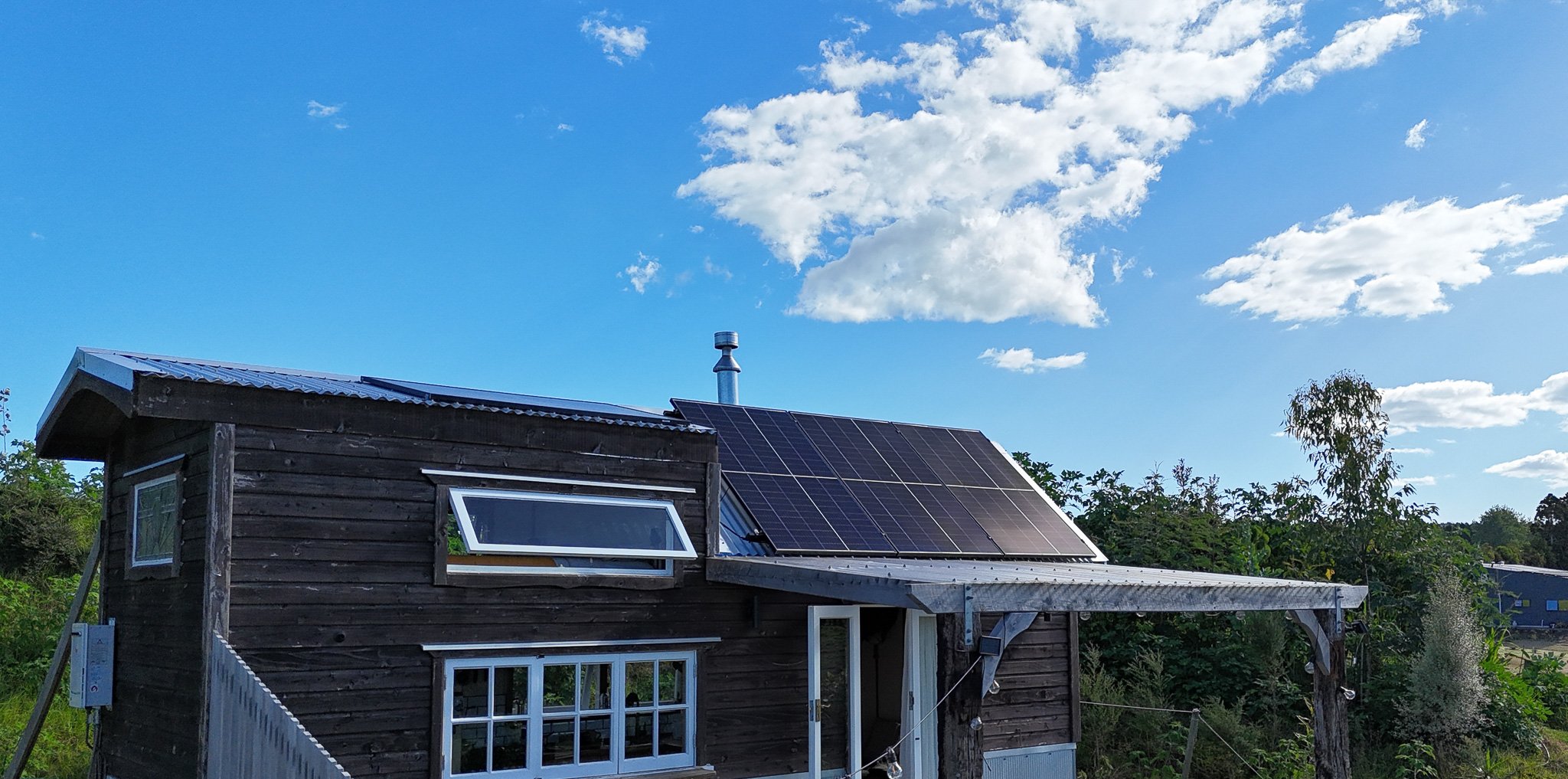
Energy independence
Off-Grid Solar
What is off-grid solar?
Off-grid solar is a fully independent power system designed for homes, tiny houses, sleepouts, and remote properties. Energy is generated from solar panels with excess stored in a battery. This system uses a backup generator when needed, ensuring reliable power without any connection to the grid.
WHY CHOOSE OFF-GRID SOLAR?
Benefits
An off-grid solar system provides complete energy independence, eliminating reliance on power companies while offering a sustainable and self-sufficient lifestyle.
No electricity bills
Enjoy 100% self-sufficiency with
no ongoing power bills.
Total independence
Generate and store your
own energy—no grid required.
Sustainable living
A clean energy solution
for eco-conscious homeowners.
Remote living
Ideal for tiny homes, sleepouts,
and rural properties.
How does off grid solar work?
An off-grid solar system generates electricity from solar panels storing excess energy in batteries. A backup generator is used in emergencies. During the day, solar panels charge the battery, and at night or in low-sunlight conditions stored energy powers your home.
Solar panels usually sit on your roof, capturing sunlight. Inside each panel, solar cells convert sunlight into DC electricity.
The inverter converts DC into AC electricity, making it usable for your home. It also monitors your system to keep everything running smoothly.
Once converted, the electricity moves through your switchboard, which sends power to your lights, appliances, and anything else that needs it.
Your home always uses solar power first. Any extra is automatically sent back to the grid, which may earn you credits.
A battery stores unused solar energy, providing backup power at night or during outages, ensuring your home stays powered even when the sun isn’t shining.
A monitoring system tracks how much energy your solar panels are making and how much power your home is using - all from an app or website.
Getting set-up
with solar
From start to finish, we make the installation process simple and stress-free.
Here’s what to expect.
-
Start by giving us a call or sending an email to arrange a chat with us. We’ll discuss your energy needs and schedule a home survey at a time that suits you. During the visit, we will assess your property, consider factors like roof space and backup requirements, and ensure we design the best system for your home.
Step 1
-
Following your survey, we’ll put together a tailored solar proposal outlining the best system for your needs, along with a detailed quote. Once you’re happy to move forward, simply sign the agreement and pay a deposit to secure your installation.
Step 2
-
We take care of all the necessary paperwork, including applying for district network approval (DNO) and notifying your electricity provider about your solar installation. This process typically takes around a month, and we’ll keep you updated along the way.
Step 3
-
We will install your solar system with minimal disruption—most residential installations are completed in just a few days. Once everything is in place, an independent inspector will approve the system and set up your new import/export meter.
Step 4
-
Once your system is live, you’ll start generating your own clean, green energy! We’re here to support you beyond installation, offering a 10-year workmanship guarantee and full technical support for your system.
Step 5
CHOOSING THE RIGHT SOLAR SETUP
Explore
Use solar power first, rely on the
grid when needed.
Solar power day & night, storing
energy in batteries.
Charge your car with solar power.
Maintenance
Regular checks keep your system reliable.










